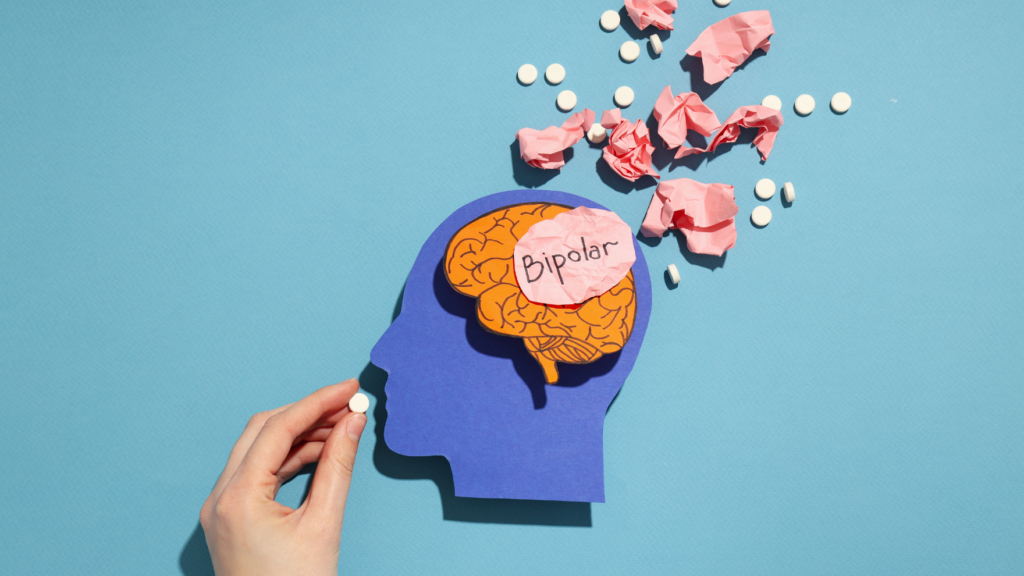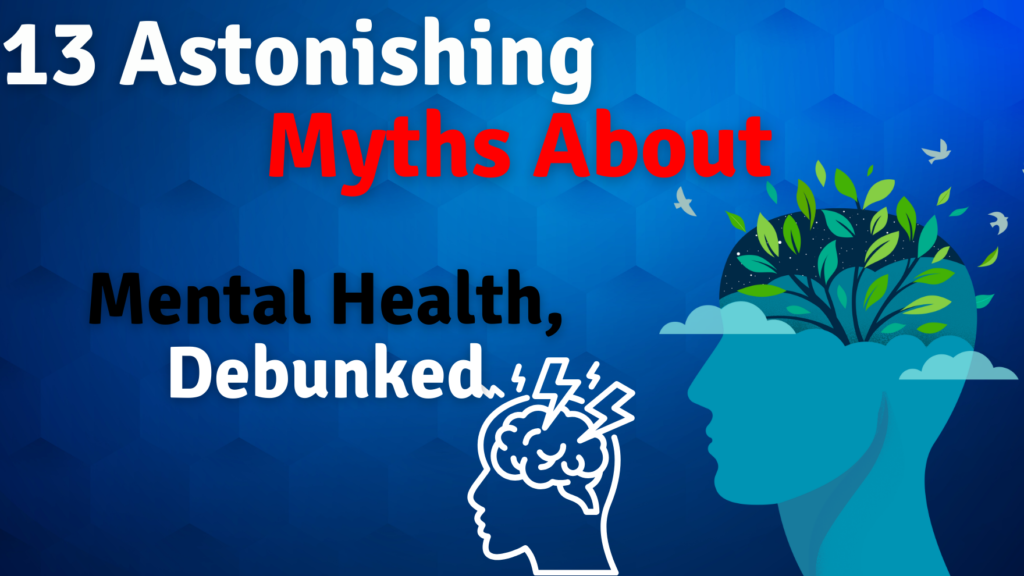13 Mental Health Myths Debunked: Break Stigma & Embrace Truth
Mental health remains one of the most misunderstood topics, and these myths prevent individuals from seeking out support for their struggles. This blog post is on 13 common myths about mental wellbeing; for each myth, we will shed light and offer a rebuttal. Defusing these myths will encourage more awareness and acceptance in respect to mental health issues, thus providing a healthier and more supportive environment to everyone.
1. Mental Health Issues Are Rare
The most common myth about mental health is that it affects only a small portion of the population. However, mental health issues are indeed quite common, with one in every four individuals affected by them. Thus, it is the idea that mental illness is rare that only fuels the stigma surrounding mental wellbeing issues, meaning it never would be easy for a particular individual to put him/herself forward in need of assistance.
2. Therapy Is Only for “Crazy” People
Though an utterly damaging myth, this myth about mental health often stands to be untrue. Therapy is a useful tool for anyone experiencing stress, personal development, or serious mental health conditions. mental wellbeing therapy guides people in handling life’s challenges by giving support and strategies. Thus, it is for everybody.
3. Mental Illness Is a Sign of Weakness
Another damaging mental health myth is that mental illness is a weakness. Mental health challenges are like diabetes or heart diseases; they are medical conditions. Quite the opposite, asking for help to face mental challenges is perhaps the most potent demonstration of strength.
4. Medication Is the Only Solution

Another widely held belief about issues related to mental wellbeing is that medication is really the only treatment. While medication may play a vital role for some, many other options are available to people that can work just as well, including therapy, lifestyle changes, and holistic approaches. A combination of the different methods usually provides for what is best in treatment.
5. Children Can’t Have Mental Health Problems
This is a mental health myth that strengthens the mindset that mental wellbeing issues affect only adults. Children, too, may experience anxiety, depression, and other problems. The earlier children are helped to recognize and treat their problems, the better the chance for long-term success.
6. People with Mental Illness Are Violent
Another toxic mental wellbeing myth is characteristically based on the belief that people with mental health issues are violent. These facts must be stated clearly: Most people who have mental illness do not manifest violent behavior, in fact, they are more likely to become victims of violence rather than the active perpetrators.
7. Talking About Mental Health Makes It Worse
Many believe that discussing mental health will only worsen the situation, yet the reverse is true. Open conversations about mental wellbeing reduce the stigma and allow for badly needed support. Dispel the myth around mental wellbeing to be in a position for a better understanding and care.
8. You Can Just “Snap Out of It”
Another widespread mental wellbeing myth states that a person has to “snap out of it” to get rid of whatever ailment plagues him or her. Mental disorders are far more complicated than willpower on its own suffices to do something about them. Treatment goes beyond wanting to be cured.
9. Mental Health Issues Don’t Affect Physical Health

This according to the mental health myth places very little weight on the relationship between our mind and our bodies. Bad mental wellbeing leads to headaches, tiredness, and even chronic illnesses. Hence, caring for mental wellbeing makes a difference to the body’s well-being.
10. Mental Health Problems Are Permanent
This is one more very ordinary mental wellbeing myth-a notion that mental illness is permanent. Different people recover from such problems with treatment and support; others just learn proper symptom management.
11. Only Women Experience Mental Health Issues
Another gendered myth around mental wellbeing insists that it’s primarily women who suffer. Men too face challenges concerning their mental wellbeing but often choose not to share due to societal pressure because many men perceive talking about their inner feelings as a sign of weakness. Encouragement to speak candor can establish an open forum for all.
12. Mental Health Support Is Too Expensive
This leads many to avoid seeking help because they consider it too expensive. mental wellbeing support can be affordable even without insurance, considering programs offered in communities or even online resources. Clearing that myth around mental wellbeing could bring more helpers to light.

13. Recovery from Mental Illness Is Impossible
Perhaps the most dejecting myth surrounding mental wellbeing recovery is that it doesn’t exist. Recovery may not always be easy, but millions maintain a full life after enduring mental illness. There are many who find recovery attainable through hope, medication, and perseverance.
Conclusion
Ridding society of 13 such ridiculous myths about mental wellbeing I am quite sure would go a long way toward its being rejuvenated and made compassionate. Awareness would also pave the way to abolish the stigma and hence facilitate the neediest in getting the support they need. Let us fight vices and build a developed world where mental wellbeing can be ensured the priority it richly deserves.
